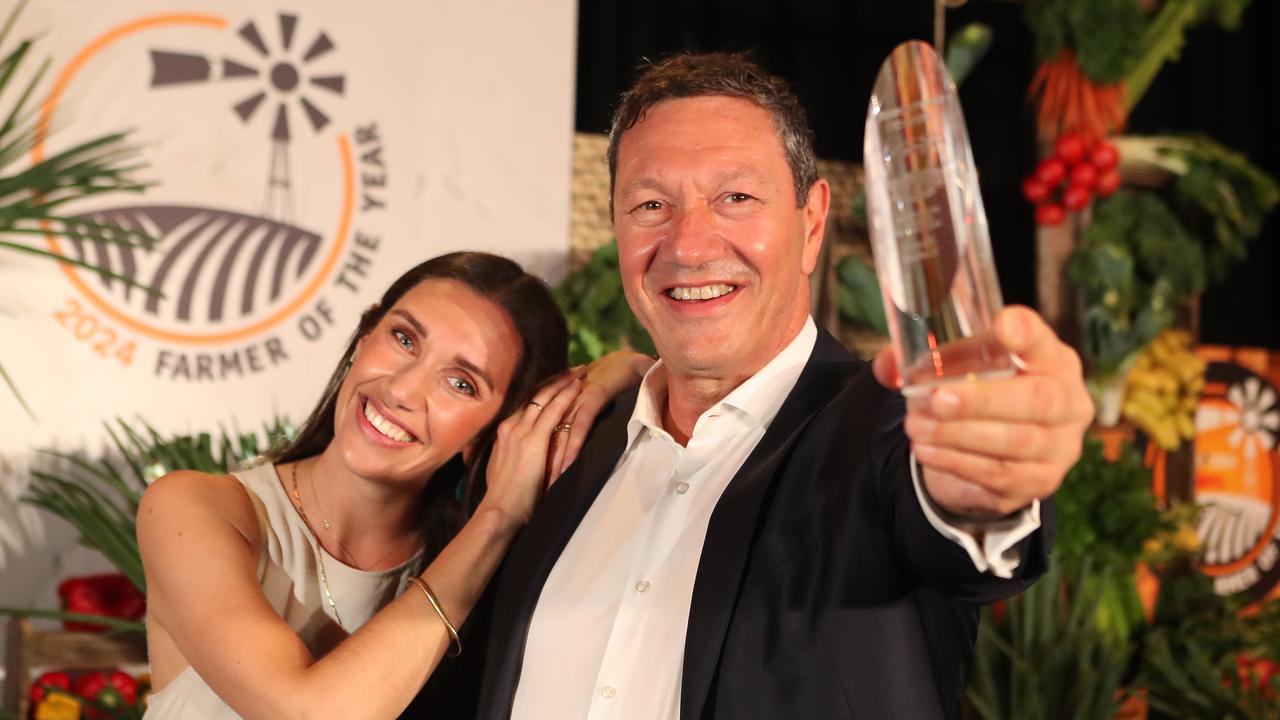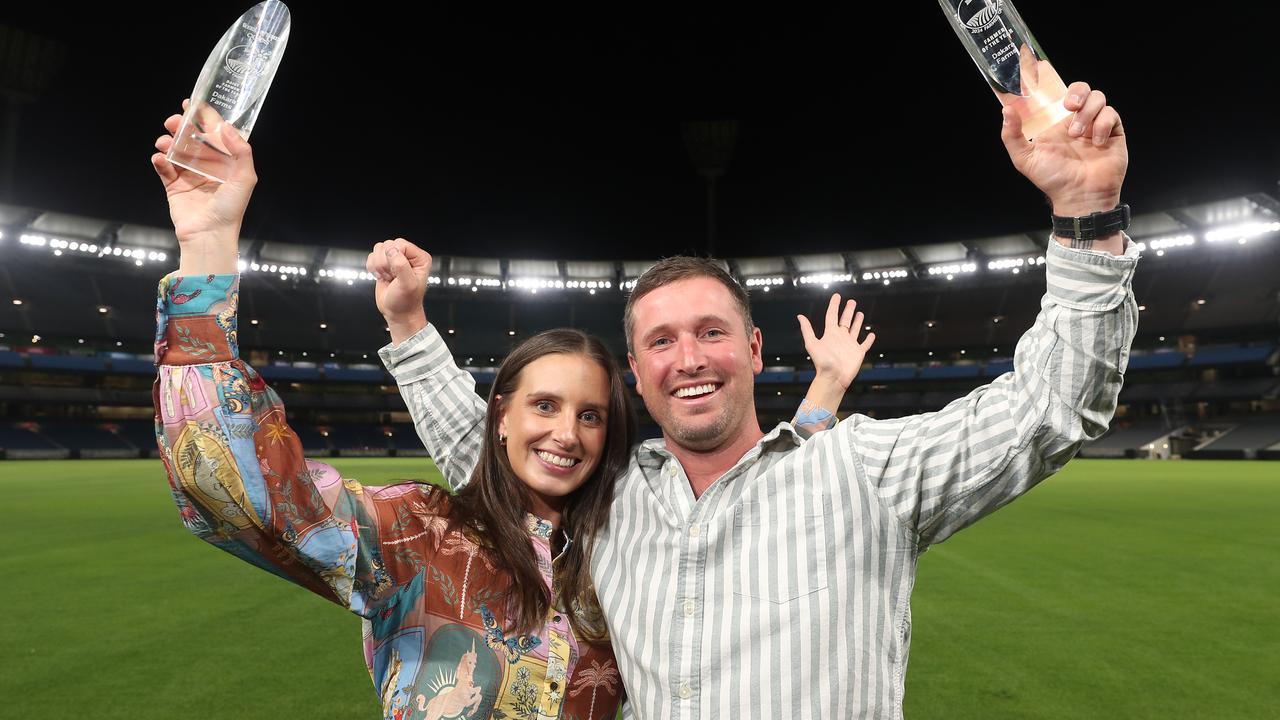Boutique Wagyu beef success at Kildrummie
A career surgeon with a taste for high end beef has started farming Wagyu at his Colac property.
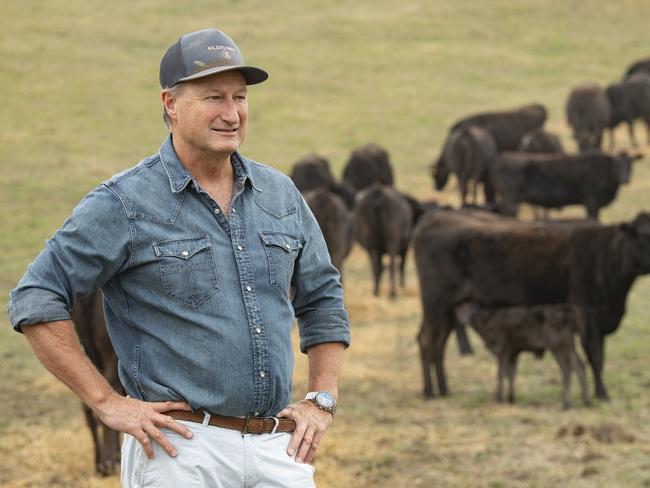
Stephen Gibbons wasn’t expecting to have two careers at age 60 – the least of which as a farmer.
“I left farming 30 years ago and didn’t think I would ever get back into it but I guess if it is in your DNA, it draws you back in,” Stephen said.
An oral and maxillofacial surgeon at Royal Melbourne Hospital, Stephen runs cattle enterprise Kildrummie with 450 full blood Wagyu breeders and 850 Angus breeders on 1100ha near Colac, in the state’s southwest, together with his wife, Natalie McLean.
They background steers for Mayura Station feedlot at Millicent, SA, which produces high-end Wagyu beef under gold, platinum and signature label brands to local and international markets.
“I entered the Wagyu space because I loved eating it and saw a point of difference between Wagyu and regular beef cattle,” Stephen said.
“But it is not for the faint hearted to get into because the management of the animals is quite complex and the unit value of the animal is very high.”
A MATTER OF CHOICE
Not new to farming, Stephen was one of the third generation growing up on a family farm in the NSW Riverina and spent five years working there during university and prior to commencing his surgical career, which has now spanned three decades.
Over the past seven years, he has purchased four properties within 40 minutes of each other at Birregurra, Irrewillipe, Beeac and Alvie after a strong desire to re-enter the farming world.
“When I got back into farming I wanted to make sure the properties we purchased were drought proof and had a diversity of weather, soil types, shelter, and a combination of warmer and wetter country,” Stephen said.
The Wagyu are primarily run at Birregurra where they can be managed closely, while the Angus breeders are run at Beeac and Irrewillipe. The property at Alvie is used for fattening and fodder production – up to 3000 tonne a year.
Winter and summer crops are planted to boost feeding and fodder including lucerne, rye-grass, fescue, brassica and grazing oats.
Three full-time staff and one part-time employee operate the daily running of the operation but Stephen is hands-on managing the business, stock work and genetics. Specialised procedures such as embryo transfer, artificial insemination and veterinary services are outsourced.
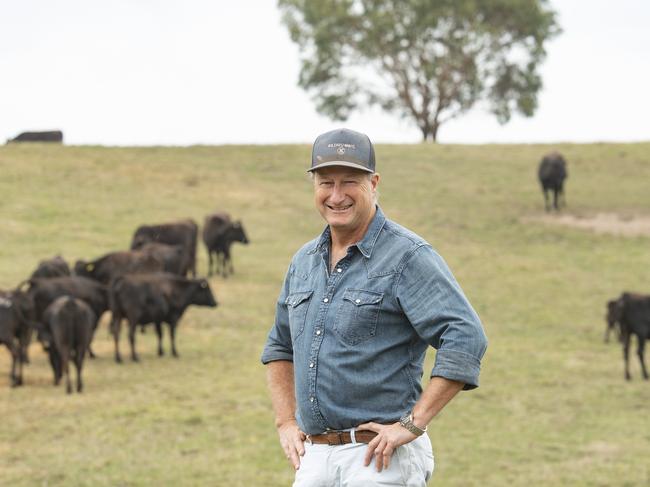
NEW BEGINNINGS
The Wagyu business began with 65 embryos and two full-blood bulls from Scott de Bruin’s Mayura Station. Recipient Angus cows were used for the embryo program.
A commercial Angus herd was also developed to help financially support the Wagyu business during herd expansion.
Angus steers are currently sold to feedlots in northern NSW and southern Queensland from 14-16 months at 500kg liveweight but the Angus herd will be reduced as Wagyu numbers increase.
Genetics have been selected from Mayura, Trentbridge, Sumo and Circle 8 bloodlines.
MANAGING FOR MARBLE
A fixed nine-day AI program is conducted in autumn and spring, and cows, both Wagyu and Angus, calve tightly over five to seven weeks. Mop-up bulls are used for two cycles following AI.
A Wagyu embryo transfer program is carried out every one to two years.
Stephen said the Wagyu calves were managed differently to Angus as they were more susceptible to diseases earlier in life.
“In particular the Wagyu calves are vulnerable to pneumonia and scours so cow and calf management is very important,” he said.
“The breeders can also be low in milk so we try to breed in a higher milk production level which also helps the calf.
“Wagyu is all about marbling – that’s what people pay money for – but you have to have live cattle at the end of the day so you need to keep them as healthy as you can and they require a fair bit of supplementary feeding.”
From two to three months, calves are creep fed with access to a high protein and grain mix to help early rumen development.
Steers are grown out for 14 to 16 months to 350-400kg liveweight before being sold to Mayura feedlot, four hours away. The steers are then fed to about 750kg before being processed and all carcass data is fed back to help with selection and management at Kildrummie.
“Prices can be substantially higher than the value of the regular beef market,” Stephen said.
“But the survival rate is lower for Wagyu calves compared to Angus calves, and inputs and costs of production are higher and they require more intensive management. It is hard to quantitate but there is a worldwide appetite for the high-end Wagyu product, so if you’ve got a specific boutique market and people want your product, they will pay for it.”
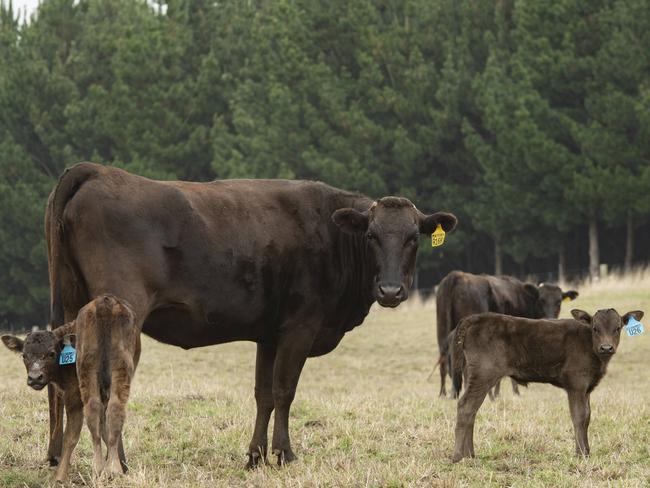
A TEST OF VALUE
Calves are genomically tested at two to three months for parent verification, performance data and to test for viruses and genetic diseases.
“It gives you the pedigree and proves that they are full blood,” Stephen said.
“We do genomic testing with the Angus as well, which you could say in a commercial business is not necessary, but the way beef breeding is going, genomics gives you a way of quantifying your animals’ potential performance and knowing whether to use certain bulls or females.”
As Kildrummie’s Wagyu numbers increased, genomics testing showed the quality of some male calves was too good to castrate. This opened the door for a seedstock business, conducted in parallel to beef production, where up to 20 bulls are sold each year to commercial F1 producers aiming to get more marbling in their animals.
“I went into that largely by default as I wasn’t aiming to breed bulls for sale but if you get your genomics back and you have an animal in the top 5 per cent of the breed it is a bit hard to castrate him,” Stephen said.
Within the next decade, Stephen hopes to complete the transition at Kildrummie away from Angus to produce Wagyu only.
“I have no regrets about farming Wagyu. It is an amazing breed with amazing people in the industry from breeders to the AWA and to feedlotters and allied services,” he said.
“I want it to lead to a profitable business supporting the many associated with it in the production of high-end Wagyu cattle and product.”
The Weekly Times is searching for the best farmers from across Australia to profile as part of this year’s The Weekly Times Coles Farmer of the Year campaign.
If you know someone who deserves to be recognised as an outstanding farmer, let us know by nominating them in the form below.



